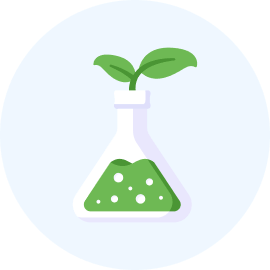GATE Life Sciences Exam > GATE Life Sciences Videos > Crash Course for GATE Life Sciences > GATE Life Science: Biochemistry- 2
GATE Life Science: Biochemistry- 2 Video Lecture | Crash Course for GATE Life Sciences
FAQs on GATE Life Science: Biochemistry- 2 Video Lecture - Crash Course for GATE Life Sciences
| 1. What topics are covered in the Biochemistry section of the GATE Life Sciences exam? |  |
Ans. The Biochemistry section of the GATE Life Sciences exam typically covers a variety of topics including biomolecules (proteins, nucleic acids, carbohydrates, and lipids), metabolic pathways, enzyme kinetics, biochemical techniques, and molecular biology concepts. Candidates should focus on understanding the structure and function of biological macromolecules, metabolic regulation, and the principles of biochemical methods.
| 2. How can I prepare effectively for the Biochemistry section of the GATE Life Sciences exam? |  |
Ans. Effective preparation for the Biochemistry section can be achieved through a combination of studying standard textbooks, reviewing previous years' question papers, and practicing mock tests. It is important to have a strong grasp of fundamental concepts, and students should consider forming study groups for discussion and clarification of complex topics. Additionally, utilizing online resources and video lectures can enhance understanding.
| 3. Are there any recommended textbooks for studying Biochemistry for the GATE exam? |  |
Ans. Yes, several textbooks are highly recommended for Biochemistry in preparation for the GATE exam. Some of these include "Lehninger Principles of Biochemistry" by Nelson and Cox, "Biochemistry" by Berg, Tymoczko, and Stryer, and "Biochemistry" by Garrett and Grisham. These texts provide comprehensive coverage of biochemistry concepts and are recognized in the academic community.
| 4. What is the weightage of the Biochemistry section in the GATE Life Sciences exam? |  |
Ans. The weightage of the Biochemistry section in the GATE Life Sciences exam can vary each year, but it generally constitutes a significant portion of the Life Sciences syllabus. Candidates should review the official GATE syllabus for the specific year they are taking the exam to understand the exact distribution of marks and focus their studies accordingly.
| 5. How important is it to practice numerical problems in Biochemistry for the GATE exam? |  |
Ans. Practicing numerical problems in Biochemistry is crucial for the GATE exam, as it helps in understanding the application of theoretical concepts. Numerical questions may include enzyme kinetics calculations, metabolic pathway analysis, and thermodynamic principles in biochemical contexts. Regular practice will enhance problem-solving skills and boost confidence during the exam.
Related Searches















